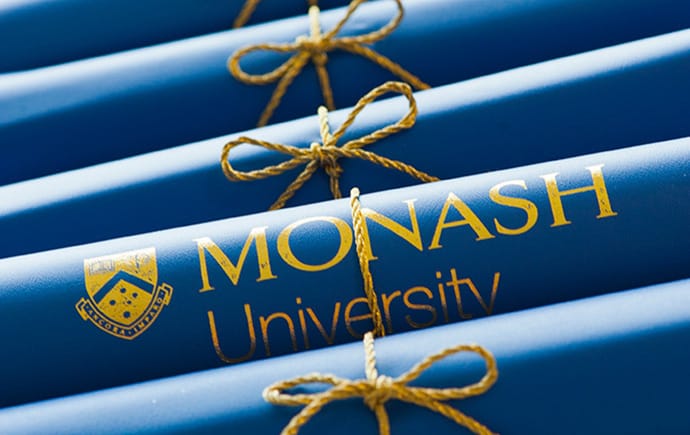
William Yan
Fulbright Scholar Dr William Yan is harnessing virtual reality to reduce the burden of blindness in under-resourced areas.
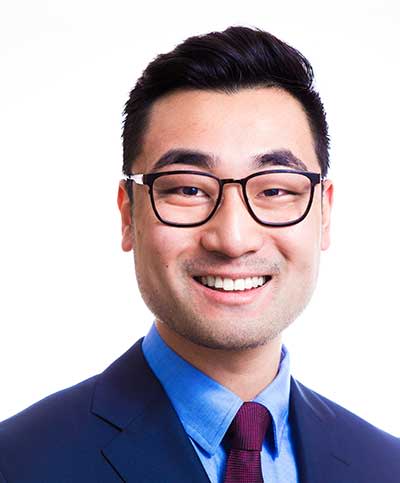
With a keen interest in public health and eye disorders, Yan will be completing a program in biomedical informatics and a fellowship of ophthalmic innovation at Stanford University’s Byers Eye Institute. He’ll be looking at technological advances such as machine learning and virtual reality (VR) to improve screening, monitoring and outcomes for people with glaucoma and other eye disease.
“I want to improve technology and access to health services in under-resourced areas where the burden of blindness is greatest.
“The overarching mission is to explore ways we can test people’s functional vision in their environment in functional ways, or by improving screening using machine learning. Stanford has a strong track record for innovation in ophthalmology, and is also perfectly nested in the bleeding-edge environment of Silicon Valley.
“In particular, I’m interested in how new platforms such as AI and VR can help screen and monitor complex eye disease. Existing tests and equipment can be expensive and inaccessible to people living in under-resourced areas. But what if you could bring a cheaper mobile headset into remote communities where people can be diagnosed, followed up and treated? There’s enormous potential to make a difference.
“The impact is in providing resource-intensive investigations and technology to under-resourced areas.
“This program will provide insight into medical technology translation, and is offering courses within Stanford schools of computer science, bioinformatics, engineering and business.”
Daniel D’Hotman
For Rhodes Scholar, Dr Daniel D'Hotman, the key to healthcare reform lies in digital transformation.
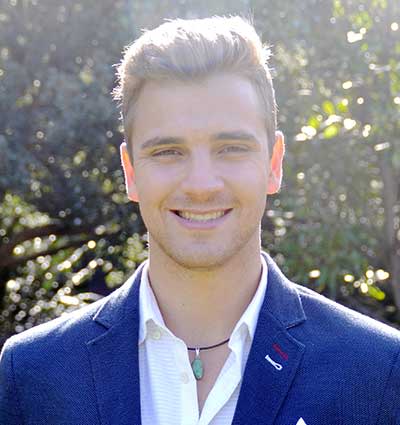
Medical graduate D’Hotman is one of nine Australians awarded a 2019 Rhodes Scholarship to study at Oxford University. He’ll undertake masters’ degrees in international health and public policy to equip him for a leadership role at the World Health Organization or to drive health system reform in government.
“I went into medicine to help people. As I accumulated more clinical experience, I began to see the best way to make a difference to patients’ lives is to change systems that drive healthcare delivery. I believe the best opportunity to achieve this vision lies in digital transformation.
"If we harness technologies like artificial intelligence, precision genomics and advanced analytics, we can create systemic change and provide access to improved health services – for potentially millions of people globally.
“I want to see humans and technology working together to provide the best standard of healthcare possible, and I hope to increase my capacity to improve health systems using digital technologies. For example, data needs to speak a common language and support doctors at the bedside.
“There’s an amazing opportunity to use technology and learn from what we’ve done poorly in Western health systems to create efficient, low-cost but high-impact health solutions for people everywhere.
“I hope to play a role in bringing medicine, technology and policymakers together to enact a change agenda.”
Khoa Cao
Through a combination of engineering, creativity and clinical intuition, Fulbright Scholar Dr Khoa Cao aims to build scalable medical solutions that will help millions.
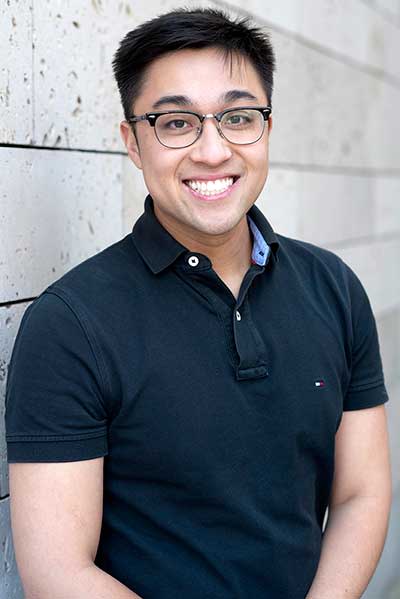
Following a Monash medical degree, a Master of Public Health and the founding of med-tech startup HorusAI, Cao’s Fulbright Scholarship takes him to Stanford University for a Master of Science in Bioengineering, where he’ll build his capacity to deliver low-cost medical devices and technologies.
“Interning at the World Health Organization, I realised doctors could harness the power of other fields to design and implement powerful solutions to benefit millions of people over just the one, which has led me to where I am today.
“I want to build affordable and scalable medical technologies to improve healthcare in developing countries, rural and remote Australia, and for humanitarian crises. This encompasses both medical devices and software underpinned by artificial intelligence.
“Many medical devices are simply too expensive or poorly designed for use in low-income countries and remote Australia. Solving this problem requires a mix of clinical intuition, clever engineering and creativity with business models, so a focus on bioengineering will sharpen my technical capacity to build solutions that improve healthcare for the most disadvantaged populations around the world.
“With the Fulbright Scholarship, I intend to strengthen networks and connections between Australia and America, and foster a greater drive for healthcare innovation at home. Stanford has a phenomenal track record with engineering and medical advances, and I look forward immensely to the experience.”
Michael Fahey
Fulbright Scholar Associate Professor Michael Fahey is unlocking the genetic code that leads to neurodisability.
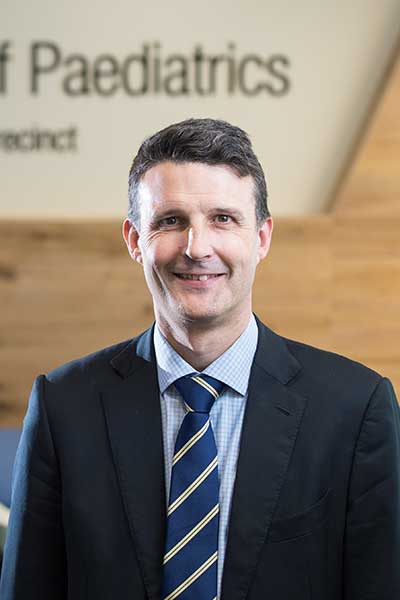
Head of paediatric neurology at Monash Children’s Hospital, Fahey is undertaking his Fulbright Scholarship at the University of Arizona, linking world-leading CSIRO neuroimaging data with contemporary genomic techniques to better characterise the genetic changes that lead to cerebral palsy (CP).
“As a child neurologist and clinical geneticist, I’ve worked for more than 10 years with people affected by chronic disability. I’m passionate about providing an explanation, treatment and, ultimately, a cure.
“The excitement about the ‘genomic revolution’ is justly deserved. There’s never been a greater opportunity to harness genetic technologies to deepen our understanding of complex disease.
“Recent studies indicate about 30 per cent of people with CP have a genetic contribution to their condition. This is surprising for many. My project furthers collaborations between Australia, North America and Canada to use genetic technologies to understand CP, the most common childhood disability.
“We’ll extend the existing database of clinical and genomic data and incorporate world-leading neuroimaging data from individual brain scans, and then, using contemporary genomic techniques, identify and characterise new genetic changes that lead to CP.
“People affected by neurological disability are looking for a reason why this has happened and what to do about it. This study addresses those questions. I’ll bring home newly identified genetic causes for neurodisability; unlocking the genetic code that leads to these conditions is essential for counselling, surveillance, early detection and precision medicine programs.”
Edward Cliff
Through policy change, Fulbright Scholar Edward Cliff plans to combat obesity.
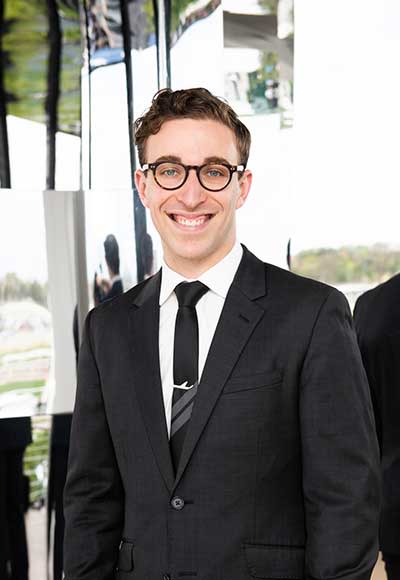
Medical registrar Cliff’s Fulbright Scholarship takes him to Harvard, where, through a Master of Public Health, he’ll hone his policy skills to combat obesity – a significant contributing factor to many non-communicable diseases – by driving system and policy change.
“Non-communicable diseases, such as diabetes, stroke and heart disease, are highly related to factors including diet and exercise, which are influenced by society and the food system. I want to change the food system through policy, to enable people to eat more nutritious food and get more exercise. We know policies around regulation, taxation, labelling and marketing can make a huge difference.
“What we must do – in the first instance – is not blame and stigmatise people because of their weight or nutrition, but change the system to help prevent people from gaining weight and to empower them to eat nutritionally.
“Harvard has great schools of both public policy and public health, and it’s a world leader in nutrition research. So I’ll be beefing up my public health knowledge and skills while learning about negotiation and the policy levers you have to lean on to drive policy in the right direction.
“This will complement my knowledge in clinical medicine and experience at the bedside, where I often see people suffering from otherwise preventable ailments.
“I want to use this experience to drive change in systems, decrease the stigma faced by these individuals, get a positive health message across, and prevent people ending up in these situations.”
James Barklamb
Shwarzman Scholar James Barklamb is drawing on his expertise in public health policy to improve inequality in accessing health services in China.
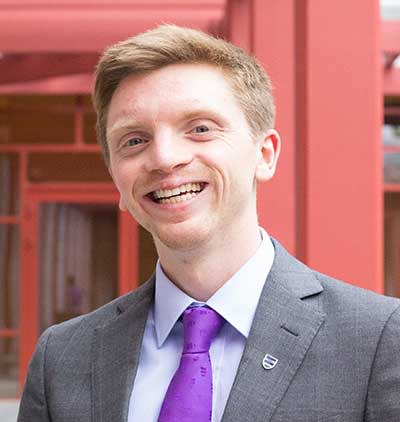
With a background in humanitarian law and conflict studies, and having worked with communities in Cambodia, Myanmar and Rwanda, Barklamb has become the first Monash graduate awarded a Schwarzman Scholarship. Offered through China’s Tsinghua University, the scholarship aims to improve, through first-hand experience, understanding between China and the rest of the world through the next generation of global leaders.
“More than anything, I think I’ve been incredibly lucky. The program’s main focus is leadership and understanding China, and we’ve been fortunate to get insight from leading Chinese reform-era policymakers and international experts who have given us insight into real-world problems and policy practice.
“I’m passionate about public health policy, and my major research project is on cleft care and inequality [in accessing health services] in China, understanding the challenges facing the system, and the ways to bring it towards recognised best practice.
“There’s an emphasis on applying learning to real-world contexts. For the practical training component, work experience is encouraged to understand how these challenges play out in everyday practice. I’m working with the Gates Foundation to improve access to vaccines.
“For me, the program has crystallised my ambitions and where I want to see change. The training on policy issues has been helpful because it’s taught me ways in which I’d like to see systems of government change, but also the ways systems of government can work effectively to better deliver this change.”





